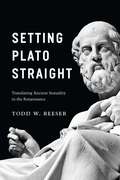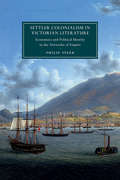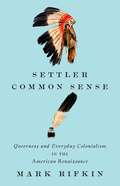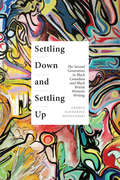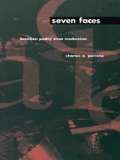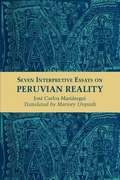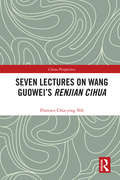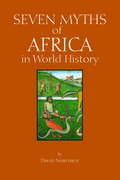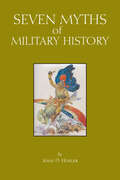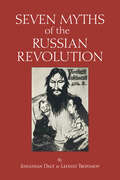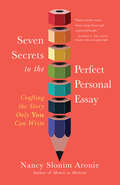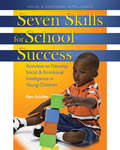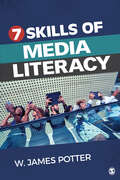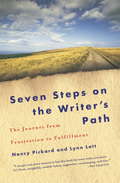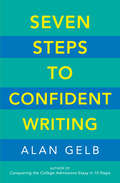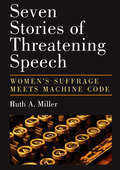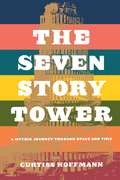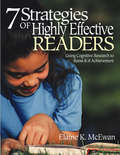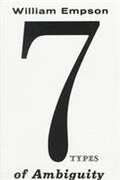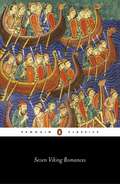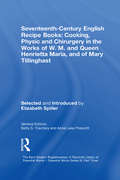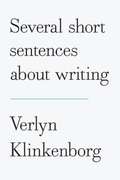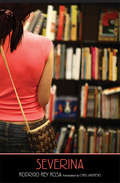- Table View
- List View
Setting Plato Straight: Translating Ancient Sexuality in the Renaissance
by Todd W. ReeserWhen we talk of platonic love or relationships today, we mean something very different from what Plato meant. For this, we have fifteenth and sixteenth-century European humanists to thank. As these scholars—most of them Catholic—read, digested, and translated Plato, they found themselves faced with a fundamental problem: how to be faithful to the text yet not propagate pederasty or homosexuality. In Setting Plato Straight, Todd W. Reeser undertakes the first sustained and comprehensive study of Renaissance textual responses to Platonic same-sex sexuality. Reeser mines an expansive collection of translations, commentaries, and literary sources to study how Renaissance translators transformed ancient eros into non-erotic, non-homosexual relations. He analyzes the interpretive lenses translators employed and the ways in which they read and reread Plato’s texts. In spite of this cleansing, Reeser finds surviving traces of Platonic same-sex sexuality that imply a complicated, recurring process of course-correction—of setting Plato straight.
Settler Colonialism in Victorian Literature: Economics and Political Identity in the Networks of Empire (Cambridge Studies in Nineteenth-Century Literature and Culture #122)
by Philip SteerHow did the emigration of nineteenth-century Britons to colonies of settlement shape Victorian literature? Philip Steer uncovers productive networks of writers and texts spanning Britain, Australia, and New Zealand to argue that the novel and political economy found common colonial ground over questions of British identity. Each chapter highlights the conceptual challenges to the nature of 'Britishness' posed by colonial events, from the gold rushes to invasion scares, and traces the literary aftershocks in familiar genres such as the bildungsroman and the utopia. Alongside lesser-known colonial writers such as Catherine Spence and Julius Vogel, British novelists from Dickens to Trollope are also put in a new light by this fresh approach that places Victorian studies in a colonial perspective. Bringing together literary formalism and British World history, Settler Colonialism in Victorian Literature describes how what it meant to be 'British' was re-imagined in an increasingly globalized world.
Settler Common Sense: Queerness and Everyday Colonialism in the American Renaissance
by Mark RifkinIn Settler Common Sense, Mark Rifkin explores how canonical American writers take part in the legacy of displacing Native Americans. Although the books he focuses on are not about Indians, they serve as examples of what Rifkin calls &“settler common sense,&” taking for granted the legal and political structure through which Native peoples continue to be dispossessed.In analyzing Nathaniel Hawthorne&’s House of the Seven Gables, Rifkin shows how the novel draws on Lockean theory in support of small-scale landholding and alternative practices of homemaking. The book invokes white settlers in southern Maine as the basis for its ethics of improvement, eliding the persistent presence of Wabanaki peoples in their homeland. Rifkin suggests that Henry David Thoreau&’s Walden critiques property ownership as a form of perpetual debt. Thoreau&’s vision of autoerotic withdrawal into the wilderness, though, depends on recasting spaces from which Native peoples have been dispossessed as places of non-Native regeneration. As against the turn to &“nature,&” Herman Melville&’s Pierre presents the city as a perversely pleasurable place to escape from inequities of land ownership in the country. Rifkin demonstrates how this account of urban possibility overlooks the fact that the explosive growth of Manhattan in the nineteenth century was possible only because of the extensive and progressive displacement of Iroquois peoples upstate.Rifkin reveals how these texts&’ queer imaginings rely on treating settler notions of place and personhood as self-evident, erasing the advancing expropriation and occupation of Native lands. Further, he investigates the ways that contemporary queer ethics and politics take such ongoing colonial dynamics as an unexamined framework in developing ideas of freedom and justice.
Settling Down and Settling Up: The Second Generation in Black Canadian and Black British Women’s Writing
by Andrea Katherine MedovarskiComparing second generation children of immigrants in black Canadian and black British women’s writing, Settling Down and Settling Up extends discourses of diaspora and postcolonialism by expanding recent theory on movement and border crossing. While these concepts have recently gained theoretical currency, this book argues that they are not always adequate frameworks through which to understand second generation children who wish to reside "in place" in the nations of their birth. Considering migration and settlement as complex, interrelated processes that inform each other across multiple generations and geographies, Andrea Katherine Medovarski challenges the gendered constructions of nationhood and diaspora with a particular focus on Canadian and British black women writers, including Dionne Brand, Esi Edugyan, and Zadie Smith. Re-evaluating gender and spatial relations, Settling Down and Settling Up argues that local experiences, often conceptualized through the language of the feminine and the domestic in black women’s writings, are no less important than travel and border crossings.
Seven Faces: Brazilian Poetry Since Modernism
by Charles A. PerroneBrazil, perhaps more than any other nation of the Americas, has placed poetry at the forefront of dialogue and debate about the limits and uses of art, the social duties of artists, and the nature of nationalism and national identity. In Seven Faces, Charles A. Perrone charts the course of Brazilian poetry in the contemporary period through the principal currents, multiple tendencies, and aesthetic tensions that have made the Brazilian lyric so creatively diverse.Perrone introduces the most important poetic themes of the second half of this century with a look back at Brazilian modernismo and the avant-garde legacy of poets of the 1920s and 30s. Brazilian poets, the author reveals, have long drawn inspiration from the other arts, experimenting with the inclusion of music, graphic arts, and other nontraditional elements within lyric forms. Relating aesthetic concerns to cultural issues, Perrone elucidates the major poetic movements in Brazil since modernismo: concretism and vanguard poetry, politically committed verse of the 60s, youth poetry of the 70s, the lyricism of Brazil's renowned popular music, and the rethinking of poetry through postmodernism in the final decades of this century.Providing a window on the ways in which poetry reflects a national spirit and offers a measure of the status of culture in a consumer society, Seven Faces is the only book-length study in English of contemporary Brazilian poetry. It will be welcomed by students and scholars of Latin American literature as well as by general readers interested in poetry and its influence on culture and society.
Seven Interpretive Essays On Peruvian Reality
by José Mariátegui Marjory UrquidiJose Carlos Mariátegui was one of the leading South American social philosophers of the early twentieth century. He identified the future of Peru with the welfare of the Indian at a time when similar ideas were beginning to develop in Middle America and the Andean region. Generations of Peruvian and other Latin American social thinkers have been profoundly influenced by his writings. <p><p> Seven Interpretive Essays on Peruvian Reality (Siete ensayos de interpretación de la realidad peruana), first published in 1928, is Mariátegui's major statement of his position and has gone into many editions, not only in Peru but also in other Latin American countries. The topics discussed in the essays—economic evolution, the problem of the Indian, the land problem, public education, the religious factor, regionalism and centralism, and the literary process—are in many respects as relevant today as when the book was written. <p> Mariátegui's thinking was strongly tinged with Marxism. Because contemporary sociology, anthropology, and economics have been influenced by Marxism much more in Latin America than in North America, it is important that North Americans become more aware of Mariátegui's position and accord it its proper historical significance. <p> Jorge Basadre, the distinguished Peruvian historian, in an introduction written especially for this translation, provides an account of Mariátegui's life and describes the political and intellectual climate in which these essays were written.
Seven Lectures on Wang Guowei’s Renjian Cihua (China Perspectives)
by Florence Chia-Ying YehRenjian cihua is a masterpiece of literary criticism written by Wang Guowei (1877–1927), a scholar of the Chinese classics who lived during the late Qing and early Republican periods. Since its publication in 1908 and 1909, it has been one of the most influential academic works in China. Elegantly written, Wang’s set of "remarks on ci poetry" (cihua) retains a traditional Chinese impressionistic critical approach, and can present difficulties to the common reader. This set of lectures by Florence Chia-ying Yeh explains the text to readers, making accessible Wang’s famous theory of jingjie ("aesthetic realm" or "artistic conception"), his views on how the ci differs from the shi genre of Chinese poetry, and his critical judgments of various famous ci poets from the Tang, Five Dynasties, and Song periods. The lectures are presented here in an English translation by Maija Bell Samei.
Seven Modes of Uncertainty
by C. Namwali SerpellLiterature is rife with uncertainty. Literature is good for us. These two ideas about reading literature are often taken for granted. But what is the relationship between literature's capacity to unsettle, perplex, and bewilder us, and literature's ethical value? To revive this question, C. Namwali Serpell proposes a return to William Empson's groundbreaking work, Seven Types of Ambiguity (1930), which contends that literary uncertainty is crucial to ethics because it pushes us beyond the limits of our own experience. Taking as case studies experimental novels by Thomas Pynchon, Toni Morrison, Bret Easton Ellis, Ian McEwan, Elliot Perlman, Tom McCarthy, and Jonathan Safran Foer, Serpell suggests that literary uncertainty emerges from the reader's shifting responses to structures of conflicting information. A number of these novels employ a structure of mutual exclusion, which presents opposed explanations for the same events. Some use a structure of multiplicity, which presents different perspectives regarding events or characters. The structure of repetition in other texts destabilizes the continuity of events and frustrates our ability to follow the story. To explain how these structures produce uncertainty, Serpell borrows from cognitive psychology the concept of affordance, which describes an object's or environment's potential uses. Moving through these narrative structures affords various ongoing modes of uncertainty, which in turn afford ethical experiences both positive and negative. At the crossroads of recent critical turns to literary form, reading practices, and ethics, Seven Modes of Uncertainty offers a new phenomenology of how we read uncertainty now.
Seven Myths of Africa in World History
by Alfred J. Andrea David Northrup Andrew Holt"Northrup's highly accessible book breaks through the most common barriers that readers encounter in studying African history. Each chapter takes on a common myth about Africa and explains both the sources of the myth and the research that debunks it. These provocative chapters will promote lively discussions among readers while deepening their understanding of African and world history. The book is strengthened by its incorporation of actors and issues representing the African diaspora and African Americans in particular." —Rebecca Shumway, College of Charleston
Seven Myths of Military History (Myths of History: A Hackett Series)
by John D. Hosler&“This brief, provocative, and accessible book offers snapshots of seven pernicious myths in military history that have been perpetrated on unsuspecting students, readers, moviegoers, game players, and politicians. It promotes awareness of how myths are created by 'the spurious misuse and ignorance of history' and howmisleading ideas about a military problem, as in asymmetric warfare, can lead to misguided solutions. &“Both scholarly and engaging, this book is an ideal addition to military history and historical methodology courses. In fact, it could be fruitfully used in any course that teaches critical thinking skills, including courses outside the discipline of history. Military history has a broad appeal to students, and there&’s something here for everyone. From the so-called 'Western Way of War' to its sister-myth, technological determinism, to the &‘academic party game&’ of once-faddish &‘Military Revolutions,&’ the book shows that while myths about history may be fun, myth busting is the most fun of all.&”—Reina Pennington, Norwich University
Seven Myths of the Russian Revolution (Myths of History: A Hackett Series)
by Jonathan Daly Leonid Trofimov"This fascinating volume is a major contribution to our understanding of the Russian Revolution, from World War I to consolidation of the Bolshevik regime. The seven myths include the exaggeration of Rasputin's influence; a purported conspiracy behind the February Revolution; the treasonous Bolshevik dependence on German support; the multiple Anastasia pretenders to the royal inheritance; the antisemitic claims about 'Judeo-Bolsheviks'; distortions about America&’s intervention in the civil war; and the 'inevitability' of Bolshevism. In each case the authors analyze the facts, uncover the origins of the myth, and trace its later perseverance (even in contemporary Russia). To assist readers, the volume includes three reference guides (people, terms, dates), nine maps, and twenty-nine illustrations. The result is immensely valuable for undergraduate courses in Russian history." —Gregory L. Freeze, Raymond Ginger Professor of History, Brandeis University
Seven Secrets to the Perfect Personal Essay: Crafting the Story Only You Can Write
by Nancy Slonim AronieInvaluable advice for writing a knockout essay — for college admissions or self-expression — that moves readers and reveals insights into the human condition Everyone has a story, and helping people tell their stories has been Nancy Slonim Aronie’s life mission. Building on her acclaimed Memoir as Medicine, this new guide tackles the short personal essay. With warmth and humor, Nancy provides prompts, inspiration, and hard-won wisdom to empower you to write an unforgettable narrative. You’ll learn to begin with an irresistible hook (“kill ’em with the first line”) and employ compelling direct quotes, drama, vulnerability, universal themes, and self-reflection to get readers into your corner. Nancy illustrates her advice with remarkable examples of her own and others’ essays. You’ll read about actor Tony Shalhoub’s unlikely canine savior, Kate Taylor’s collaboration with Peter Asher and Elton John in the musical crucible of Los Angeles in 1970, Nancy and her beloved husband’s adventures in polyamory, and much more. In a culture increasingly inundated with generic AI-generated text, a well-crafted personal narrative is more important than ever, a declaration of human connection and meaning. Use Nancy’s secrets to stand out from the crowd and get your one-of-a-kind story onto the page.
Seven Skills for School Success: Activities to Develop Social and Emotional Intelligence in Young Children
by Pam SchillerWhat do children need to learn first? Their ABCs? Their numbers? As it turns out, the "what" children need to develop is their social intelligence and emotional intelligence, the essential building blocks for all future learning.Best-selling author Pam Schiller provides information, activities, and experiences that develop the seven skills children need in order to become successful learners. These include the ability to relate to and play with others, express feelings, and understand how others feel. Strengthen the foundation children need to become successful learners with the seven key components in this practical, easy-to-use book!The Seven Key Components for School Readiness and Success:* Confidence *Curiosity *Intentionality *Self-Control *Relationships *Cooperation *Communication
Seven Skills of Media Literacy
by W. James PotterIn Seven Skills of Media Literacy, best-selling author and renowned scholar W. James Potter provides readers with the practical guidance they need to make substantial improvements on seven major skills required to increase their media literacy. For each of these seven skills, Potter provides easy-to-follow algorithms and heuristics that structure the process of using the skill. Chapters also offer many exercises to help readers practice using these algorithms and heuristics while avoiding traps in thinking. The book is organized to guide readers progressively through the sequence of media literacy skills, starting with the most fundamental and building to the more complex skills. This book is a must read for those people serious about becoming more strategic in using the media to satisfy their own needs for information and entertainment and thereby avoid being exploited by media messages.
Seven Skills of Media Literacy
by W. James PotterIn Seven Skills of Media Literacy, best-selling author and renowned scholar W. James Potter provides readers with the practical guidance they need to make substantial improvements on seven major skills required to increase their media literacy. For each of these seven skills, Potter provides easy-to-follow algorithms and heuristics that structure the process of using the skill. Chapters also offer many exercises to help readers practice using these algorithms and heuristics while avoiding traps in thinking. The book is organized to guide readers progressively through the sequence of media literacy skills, starting with the most fundamental and building to the more complex skills. This book is a must read for those people serious about becoming more strategic in using the media to satisfy their own needs for information and entertainment and thereby avoid being exploited by media messages.
Seven Steps on the Writer's Path: The Journey from Frustration to Fulfillment
by Nancy Pickard Lynn LottThe blank page, the impossible deadline, the exhilarating rush of inspiration, the perils of publication: There is no profession more maddening or more rewarding than being a writer. Yet surprisingly, all writers, no matter how famous or successful, pass through the same sequence of stages in the course of their careers. It was this remarkable insight that inspired veteran writers Nancy Pickard and Lynn Lott to pool their talents and write a book. The result is one of the wisest and liveliest guides to the literary life ever written--a volume of astonishing revelation, warm reassurance, brilliant encouragement, and welcome humor. Drawing on their own experience as writers of fiction and nonfiction as well as the insights of scores of colleagues, Pickard and Lott follow the trajectory of the writer's life from the first time that inner voice whispers "I want to write" to the burst of accomplishment that comes when the book is finished, the vision expressed, the dream made real. No matter what you write or how much recognition you've received, if you're serious about writing as a profession, you are bound to pass through the seven steps on the writer's path. Pickard and Lott call these steps Unhappiness, Wanting, Commitment, Wavering, Letting Go, Immersion, and Fulfillment. Are you sunk in a pit of loneliness and confusion, burdened by pressures you can neither name nor escape? Welcome to the stage of Unhappiness, what Pickard and Lott call the "precreative state. " Don't worry, Tolstoy and Stephen King have been there before you, and somehow they cleared the abyss of Wanting (desires you can't shake, jealousies that sting like bees) and climbed the ladder of Commitment. Wavering is where you hit the wall, tread water, and succumb to the dread paralysis of writer's block and the abuse of unsympathetic editors and critics. E. B. White said a writer is like a surfer waiting for the perfect wave--and in the stage of Letting Go, that wave finally crests, releasing the torrent of creativity that carries you through the deeply satisfying stages of Immersion and Fulfillment. Pickard and Lott are the buddies every writer dreams of--always there to light the way and lighten your mood, generous with advice and sympathy, and bold enough to give you the occasional kick in the pants. Whether you're a "wannabe" writer or a published literary veteran, you're bound to find this book a source of true delight, vital wisdom, and lasting inspiration.
Seven Steps to Confident Writing
by Alan GelbNot everyone is a natural writer. In fact, most people don&’t think that much about writing until they&’re called upon to write something like an office memo or a wedding speech and find themselves paralyzed with self-doubt. Author and writing coach Alan Gelb specializes in helping anxious writers find their voice, drawing upon techniques that can improve anyone&’s writing, sometimes in a matter of days. His compact and easy-to-use guide demystifies the writing process and shows readers how to sculpt concise sentences, shape well-structured paragraphs, polish a final draft, and combat procrastination. Best of all, readers will see for themselves that writing is not an inborn talent but a skill that can be mastered with a bit of patience and perseverance.
Seven Stories of Threatening Speech: Women's Suffrage Meets Machine Code
by Ruth A. MillerRuth A. Miller demonstrates the potential of taking nonhuman linguistic activity-such as the running of machine code-as an analytical model. Via a lively discussion of 19th-century pro- and antisuffragists, Miller tells a new computational story in which language becomes a thing that executes physically or mechanically through systems, networks, and environments, rather than a form for human recognition or representation. Language might be better understood as something that operates but never communicates, that sorts, stores, or reproduces information but never transmits meaning. Miller makes a compelling case that the work that speech has historically done is in need of reevaluation. She severs the link between language and human as well as nonhuman agency, between speech acts and embodiment, and she demonstrates that current theories of electoral politics have missed a key issue: the nonhuman, informational character of threatening linguistic activity. This book thus represents a radical methodological initiative not just for scholars of history and language but for specialists in law, political theory, political science, gender studies, semiotics, and science and technology studies. It takes posthumanist scholarship to an exciting and essential, if sometimes troubling, conclusion. "It is an erudite work by a scholar of enormous talent, who advances a thesis that is richly insightful and deeply provocative. " -Mary Hawkesworth, Rutgers University
Seven Story Tower: A Mythic Journey Through Space And Time
by Curtiss HoffmanFrom the white stag to the green knight, The Seven Story Tower examines how myth colors our perception of history, nature, and ourselves. Organized around seven key myths-representing the Irish, Greek, Sumerian, Indonesian, Amazonian, and Inuit cultures, as well as the fantasy world of J. R. R. Tolkien-this book is the perfect intro-duction to the common themes found in world mythology. Curtiss Hoffman, a noted archaeologist and anthropologist, takes us beyond the entertaining stories and uses insights from cultural anthropology and analytical psychology to analyze the many common themes found throughout. In particular, he examines the significance of names, numbers, plants, animals, the heavenly bodies, and the human body. The Seven Story Tower will enhance the reader's appreciation of myth's power today over our lives and cultures.
Seven Strategies of Highly Effective Readers: Using Cognitive Research to Boost K-8 Achievement
by Elaine K. McEwan-AdkinsThis essential reading instruction teaching tool offers hard evidence to show how effective readers use specific strategies to extract and comprehend information.
Seven Types of Ambiguity
by William EmpsonRevised twice since it first appeared, it has remained one of the most widely read and quoted works of literary analysis. Ambiguity, according to Empson, includes "any verbal nuance, however slight, which gives room for alternative reactions to the same piece of language." From this definition, broad enough by his own admission sometimes to see "stretched absurdly far," he launches into a brilliant discussion, under seven classifications of differing complexity and depth, of such works, among others, as Shakespeare's plays and the poetry of Chaucer, Donne, Marvell, Pope, Wordsworth, Gerard Manley Hopkins, and T. S. Eliot.
Seven Viking Romances
by Hermann Palsson Paul Edwards Hermann Palsson and Paul EdwardsCombining traditional myth, oral history and re-worked European legend to depict an ancient realm of heroism and wonder, the seven tales collected here are among the most fantastical of all the Norse romances. Powerfully inspired works of Icelandic imagination, they relate intriguing, often comical tales of famous kings, difficult gods and women of great beauty, goodness or cunning. The tales plunder a wide range of earlier literature from Homer to the French romances - as in the tale of the wandering hero Arrow-Odd, which combines several older legends, or Egil and Asmund, where the story of Odysseus and the Cyclops is skilfully adapted into a traditional Norse legend. These are among the most outrageous, delightful and exhilarating tales in all Icelandic literature.
Seventeenth-Century English Recipe Books: Essential Works for the Study of Early Modern Women: Series III, Part Three, Volume 4 (The Early Modern Englishwoman: A Facsimile Library of Essential Works Series III, Part Three)
by Elizabeth SpillerRecipe books are a key part of food history; they register the ideals and practices of domestic work, physical health and sustenance and they are at the heart of material culture as it was experienced by early modern Englishwomen. In a world in which daily sustenance and physical health were primarily women's responsibilities, women were central to these texts that record what was both a traditional art and new science. The texts reprinted in these two volumes allow readers to reconstruct the history of recipes, both medical and culinary, from the mid-sixteenth to mid-seventeenth century, and situate that history within the larger scientific and intellectual practices of the period.
Several Short Sentences About Writing
by Verlyn KlinkenborgMost of what you think you know about writing is useless. It's the harmful debris of your education--a mixture of half-truths, myths, and false assumptions that prevents you from writing well. Drawing on years of experience as a writer and teacher of writing, Verlyn Klinkenborg offers an approach to writing that will change the way you work and think. There is no gospel, no orthodoxy, no dogma in this book. What you'll find here isn't the way to write. Instead, you'll find a way to clear your mind of illusions about writing and discover how you write. Several Short Sentences About Writing is a book of first steps and experiments. They will revolutionize the way you think and perceive, and they will change forever the sense of your own authority as a writer. This is a book full of learning, but it's also a book full of unlearning--a way to recover the vivid, rhythmic, poetic sense of language you once possessed. An indispensable and unique book that will give you a clear understanding of how to think about what you do when you write and how to improve the quality of your writing.
Severina
by Rodrigo Rey Rosa Chris Andrews“Right from the start I picked her for a thief, although that day she didn’t take anything. . . . I knew she’d be back,” the narrator/bookseller of Severina recalls in this novel’s opening pages. Imagine a dark-haired book thief as alluring as she is dangerous. Imagine the mesmerized bookseller secretly tracking the volumes she steals, hoping for insight into her character, her motives, her love life. In Rodrigo Rey Rosa’s hands, this tale of obsessive love is told with almost breathless precision and economy. The bookstore owner is soon entangled in Severina’s mystery: seductive and peripatetic, of uncertain nationality, she steals books to actually read them and to share with her purported grandfather, Señor Blanco. In this unsettling exploration of the alienating and simultaneously liberating power of love, the bookseller’s monotonous existence is rocked by the enigmatic Severina. As in a dream, the disoriented man finds that the thin border between rational and irrational is no longer reliable. Severina confirms Rey Rosa’s privileged place in contemporary world literature.
